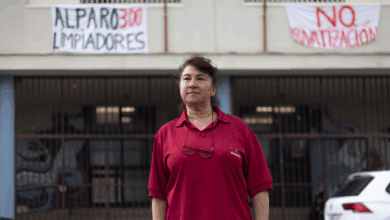
A scandal is erupting in Andalusia’s healthcare system: thousands of requests for diagnostic procedures such as MRI, ultrasound, and CT scans are being rejected without notifying either the patients or their doctors. This practice has affected several provinces across the region, leading to serious delays in diagnosis and the start of treatment.
The problem stems from regional authorities trying to cope with overwhelming waiting lists for these tests. For example, by late June in Huelva alone, nearly 40,000 diagnostic procedures remained pending. As a result, patients spend months in the dark, believing their tests are about to be scheduled, when in reality their requests have already been rejected by the system.
This situation is especially acute in hospitals with the longest waitlists. Here, denying diagnostic procedures has become routine, forcing patients to turn to private clinics to avoid wasting time and risking their health. This not only increases out-of-pocket expenses for families, but also deepens social inequality in access to healthcare.
Overworked doctors and broken notifications
The notification system, intended to keep doctors informed about the status of requests, is effectively not functioning. Doctors are overwhelmed: every day they have to sift through dozens of notifications, making it easy to miss important messages about rejected tests. If a doctor is on vacation or out sick, the information gets lost entirely. Patients only find out about the problem months later, when they return for a follow-up appointment and complain about not receiving their results.
In some cases, these are critical examinations, such as when cancer or serious chronic diseases are suspected. Delays in such situations can worsen a patient’s condition or even lead to irreversible consequences. In certain hospitals, delays with mammograms have already ended in tragedy, with illnesses progressing unnoticed by the patient.
Doctors protest new rules and increasing workload
Authorities are requiring doctors to review and justify every test request, especially those submitted in previous years. In some regions, such as Cádiz and Huelva, doctors have to manually check dozens of patients to confirm whether prescribed procedures are still relevant. However, most physicians say these requirements are excessive and disagree with the extra burden, especially during the summer holiday period when the number of patients per doctor surges.
As a result, many requests remain unprocessed, leaving patients without the examinations they need. At the same time, the official guarantees for the timing of studies are not actually upheld: patients who have been waiting since 2023 no longer fall under the current regulations.
Hidden queues and lack of transparency
Since 2019, regional authorities have stopped publishing official data on waiting times for diagnostic procedures. This makes it difficult to monitor the situation and prevents patients from objectively assessing their chances of receiving medical care on time. Authorities promise to release the information, but do so reluctantly and with reservations.
Until the system is reformed, thousands of Andalusia residents continue to live in uncertainty, not knowing when or even if they will get the examinations they need. For many, this is not just a loss of time, but a risk to their health that cannot be offset, even by turning to private clinics.












